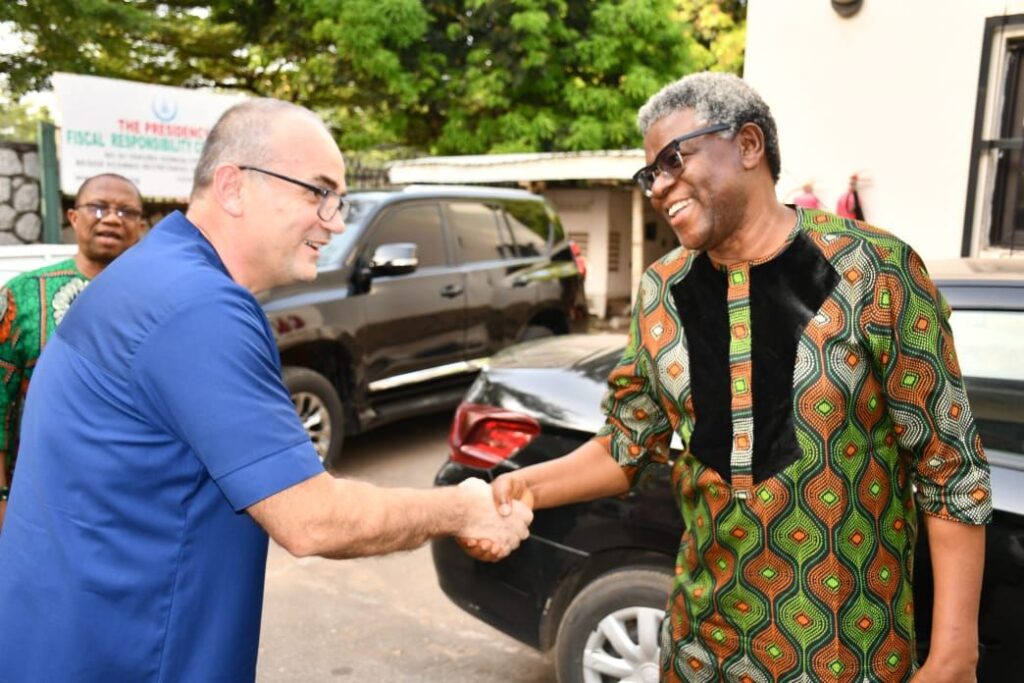The International Monetary Fund (IMF) has harped on strengthening institutional collaboration and openness in reporting fiscal vulnerabilities, stressing that effective fiscal-risk management is central to good governance.
The Fund’s Senior Economist, Africa Affairs department team, Sybi Hida, stated this when the IMF team at a high-level bilateral meeting hosted by the Fiscal Responsibility Commission (FRC), which had officials of the Debt Management Office (DMO) in attendance.
The IMF team was in the country to review Nigeria’s progress in fiscal risk management and deepen institutional cooperation.
Sybi Hida urged the FRC to pay closer attention to legal and capacity-related risks. He reiterated the IMF’s readiness to support Nigeria in enhancing fiscal-risk management practices and emphasised the need for frank disclosure of fiscal vulnerabilities.
The team was received by the Special Adviser to the Executive Chairman of FRC, Dr Chris Uwadoka, and the Director of Legal, Investigation & Enforcement, Mr Charles Chukwuemeka Abana, according to the FRC statement issued on Monday.
Hida noted that the Fund’s mission was to assess the strides made by the FRC in identifying, monitoring, and managing fiscal risks.
He emphasised the importance of strengthening institutional collaboration and encouraged greater openness in reporting fiscal vulnerabilities, stressing that effective fiscal-risk management is central to good governance.
During the technical session, Mrs Rachael Angbazo delivered a detailed presentation on, The Role of the Fiscal Responsibility Commission in Monitoring Fiscal Risks”. Her presentation outlined major sources of fiscal risk in Nigeria, including macroeconomic risks, oil-sector instability, inflationary pressures, exchange rate volatility, and rising interest rates.
Institutional & Governance Risks: Weak compliance with the Fiscal Responsibility Act (FRA), 2007 provisions.
Angbazo highlighted the Commission’s mandate—both legal and operational—in promoting transparency, enforcing fiscal rules, supporting fiscal forecasting, and improving the quality of fiscal information available to policymakers and the public.
She also outlined the FRA 2007 provisions that directly address fiscal risks, including guidelines on the Medium-Term Expenditure Framework (Section 11), deficit thresholds (Section 12), and fiscal-risk reporting (Section 19),
FRC’s ongoing initiatives were presented to the IMF team, including monitoring implementation of the MTEF and annual federal budget, supporting sub-national governments in drafting fiscal-responsibility legislation: collaboration with the National Assembly on revenue hearings and enhanced remittance oversight.
Other areas deliberated on included oversight of government borrowing to ensure alignment with FRA requirements, nationwide verification of capital projects and enforcement of audited-account disclosure by GOEs and MDAs.
Challenges discussed included funding & capacity limitations that hinder advanced fiscal-risk modelling, inconsistent reporting by MDAs/GOEs, and the Commission’s limited financial and institutional independence.
To address these constraints, the meeting recommended amending the FRA to provide for sanctions and grant prosecutorial powers to the FRC,clarifying the application of Section 12(2) to prevent abuse under emergency claims.
















